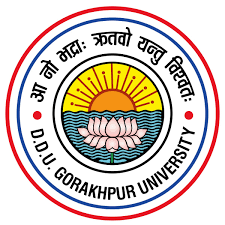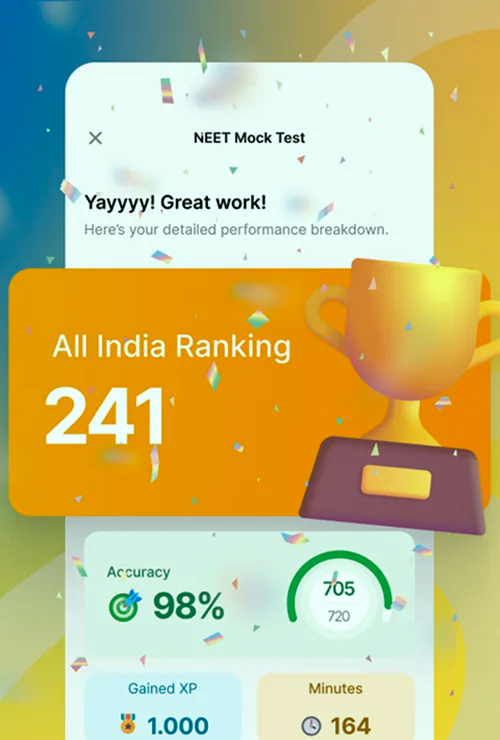General Information
Deen Dayal Upadhyay Gorakhpur University, often referred to as DDUGU or simply Gorakhpur University, is a long-standing public State University. It was established in 1957 by the Uttar Pradesh State Universities Act. Its creation was pivotal in bringing higher education opportunities to the Gorakhpur region. It's named after the prominent philosopher, sociologist, and political figure Pandit Deen Dayal Upadhyay.
As a major regional university, DDUGU plays the familiar dual role common to large state institutions. It's a teaching university offering a wide array of undergraduate, postgraduate, and doctoral programs through its various departments directly on its campus. Concurrently, it serves as a vast affiliating university, providing academic governance and awarding degrees to hundreds of colleges spread across Gorakhpur and several neighboring districts.
Key Recognitions:
Recognized by the University Grants Commission (UGC) under Section 12(B).
Holds an 'A++' Grade accreditation from the National Assessment and Accreditation Council (NAAC) – a significant achievement indicating high quality.
Relevant professional programs hold approvals from bodies like AICTE (for specific technical/management courses), NCTE (Education), BCI (Law), and potentially PCI (Pharmacy, if offered).
MCI Recogination
Recognized for 50 seats. Recognized for increase of seats from 50 to 100 when degree granted on or after March, 2018. Permitted for increase of seats from 100 to 150 under EWS quota (103rd constitution amendment) from 2019-20. Annual renewal permission granted for 150 MBBS seats for AY 2024-25
Campus Facilities
The Campus: Greenery in Gorakhpur
DDUGU's main campus is a well-known landmark in the city.
Location: Situated within the city of Gorakhpur, Uttar Pradesh.
Campus Size & Vibe: The university boasts a large and notably green campus, spanning approximately 300 acres. It offers a traditional university atmosphere with considerable open space.
Infrastructure & Facilities: The campus houses the necessary infrastructure for a multi-faculty university:
Central Library: A substantial resource center with a large collection of books, journals, manuscripts, and digital access.
Departmental Libraries: Supporting specific faculty needs.
Academic Buildings: Housing faculties like Arts, Science, Commerce, Law, Education, Agriculture, etc.
Laboratories: Equipped labs for practical work in various science, agriculture, and potentially technical subjects.
Learning Spaces: Lecture halls, seminar rooms, and classrooms.
Auditorium/Convention Facilities: Venues for university events, conferences, and cultural activities.
Sports: Facilities usually include playgrounds, potentially courts, and spaces for indoor games.
Health Centre: Provides basic medical assistance to the university community.
Residential Facilities: Hostels for students and housing for staff.
Other Amenities: Standard facilities like a bank, post office, canteen, and administrative offices.
Hospital & Medical Facilities
Leading tertiary care hospital attached to the institution
Healthcare Connection: Focus on General Academics
Deen Dayal Upadhyay Gorakhpur University does not operate its own Medical College offering the MBBS degree, nor does it have an associated large teaching hospital for this purpose. Its academic strengths lie in the traditional domains of Arts, Science, Commerce, Law, Education, and Agriculture. Medical colleges in the Gorakhpur region (like BRD Medical College) are affiliated with the state's medical university (ABVMU, Lucknow). DDUGU's on-campus Health Centre provides primary medical support.
Fee Structure
State University Affordability
Fee Structure: Highly Affordable State Education
Being a state university, DDUGU's fees, especially for government-aided courses on its campus, are generally very low and accessible. Self-financed courses (on campus or affiliated) will have higher fees.
City Details
Hostel & Mess
Campus Living: Hostel Life at DDUGU
DDUGU provides residential facilities for students enrolled in its on-campus programs.
Availability: Yes, the university has separate hostels for boys and girls within the campus. Allotment is usually based on merit, course, and distance criteria, with demand often exceeding the available seats.
Facilities: Hostels provide basic furnished rooms (mostly shared), common rooms, mess facilities, security, and warden supervision. The condition of facilities can vary.
Mess: Food is served via the hostel messes, offering regular meals at scheduled times. Expect standard fare typical of large state university messes.
Cost: Consistent with its state university status, the combined cost for hostel accommodation and basic mess food is generally very economical. The annual charges are expected to be highly affordable, likely in the ₹15,000 - ₹35,000 range (confirm exact figures from the hostel administration), making it a budget-friendly choice.
Miscellaneous
Admissions & Career Paths: Entry & Future Prospects
Getting Admitted:
University Entrance Test: DDUGU typically conducts its own entrance examinations for admission to most of its on-campus UG and PG courses (like BA, BSc, BCom, MA, MSc, MCom, LLB, MBA, MCA, B.Sc Agri, etc.).
CUET: Check the latest admission policy. While DDUGU has historically used its own test, adoption of CUET-UG and CUET-PG for certain courses (especially standard UG/PG) is increasingly common among state universities. This needs verification for the current admission cycle.
B.Ed: Admission is strictly through the UP B.Ed. Joint Entrance Examination (JEE B.Ed.).
Affiliated Colleges: Admissions are predominantly based on merit in the qualifying examination (Class 12/Graduation). Students usually apply through a centralized university portal, and colleges release merit lists based on university guidelines. Always follow the detailed instructions provided in the official DDUGU admission notification.
Career Support (Placements):
Focus: DDUGU has a placement cell, but career paths for a large majority, especially from Arts, Science, and Commerce streams, often lead towards government service examinations (Civil Services, State PCS, Banking, Railways, SSC), teaching roles (after B.Ed/NET/Ph.D.), or pursuing higher studies.
Campus Placements: Direct campus placements are more likely for professional courses like MBA, MCA, and potentially B.Tech (if offered robustly on campus), B.Sc (Agri). Recruiters often include local/regional companies, IT service firms, banks, and educational institutions.
Outcomes: Success varies. Average salary packages from campus placements, when they occur, are typically modest, often in the ₹2 LPA to ₹4 LPA range. The university's strength lies more in providing a foundation for competitive exams and further academic pursuits.
Information for NRI Candidates
Regarding admissions for Non-Resident Indian (NRI) students at DDUGU:
General Policy: As a traditional State University, DDUGU typically does not have a specific, reserved NRI quota for its standard government-aided academic programs. The admission process primarily follows UP domicile rules and standard Indian constitutional reservations.
Self-Financed Courses Possibility: It's highly unlikely but not entirely impossible that certain specialized self-financed programs (if run directly by the university with a distinct fee structure) might theoretically have provisions for admitting NRI/Foreign Nationals, perhaps on supernumerary seats and at significantly higher fees. This is not a standard feature.
Recommendation: Given the university's structure and usual admission practices, an NRI quota is improbable for most courses. The most reliable approach is direct communication. Contact the DDUGU admission office or the specific department/faculty you are interested in. Inquire explicitly if any provision exists for NRI admissions for that course, detailing the eligibility criteria, required documentation, admission procedure, and the applicable fee structure. Don't make assumptions.
Collage Images Gallery
Facilities & Campus Life
Well-equipped Library
Experienced Faculty
Computer Lab
Sports Activities
Heritage Campus
Frequently Asked Questions
Why Consult With Us?
- 15+ years of experience in medical education counseling
- 5000+ students successfully guided
- 50+ partner universities worldwide
- Free initial consultation with no obligation














